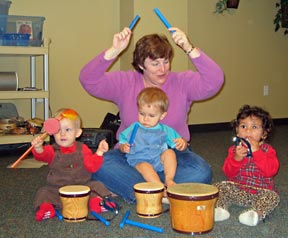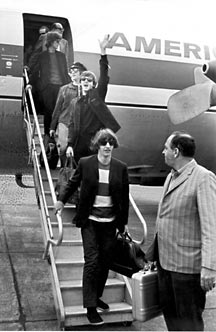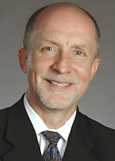Posted: 2/02/07
Around the State
• The University of Mary Hardin-Baylor College of Christian Studies and church relations office are partnering with Bell Association to present a seminar titled “Avoiding the Rattlesnakes: Integrity in Ministry.” The seminar will begin at 8:30 a.m. Feb. 10 at Memorial Church in Temple. Featured speakers include Bill Carrell, dean of the College of Christian Studies; David How-ard, director of the Marriage and Family Christian Counseling Center; and Tom Henderson, director of missions for Bell Association. For more information, call (254) 295-4606.
• The seventh annual Baylor University Sacred Harp Singing is set for Feb. 10 in the Great Hall of Truett Theological Seminary. Singing school led by Donald Ross will be held from 9:30 a.m. until 9:50 a.m. The singing will be held from 10 a.m. until 3 p.m. with a break for lunch. For more information, call (254) 644-2181.
|
| The University of Mary Hardin-Baylor Writers’ Festival afforded participants a variety of opportunities, including poetry workshops, a chance to share their work with others and an art class. About 75 writers participated in the weekend gathering. Authors Myra McLarey and Michael Lythgoe and reader Scott Cairns were the keynote speakers. The festival, in its 10th year, brought together writers from across the country. |
• Dallas Baptist University has announced a doctoral program for educators—the Ed.D. in educational leadership. It will include both higher education and K-12 study tracks. The 60-hour program will require about three years to complete.
• Howard Payne University has announced the addition of five faculty members. Full-time faculty are Bill Fowler, assistant professor of Christian studies; and Derek Smith, assistant professor of physical science. Adjunct faculty additions include Donna Bowman, Christian studies; Peggy Hickey, modern languages; and Debra Powell, business administration.
• Twenty-one East Texas Baptist University students will be included in the 2007 edition of Who’s Who Among Students in American Universities and Colleges.
• Betty Donaldson, vice president for institutional advancement at Wayland Baptist University since April 2004, has announced her retirement. Donaldson received a master’s degree from Wayland in 1989 and the Distinguished Alumni Award in 2003. During her tenure at Wayland, giving has steadily increased.
Anniversary
• Don Hessong, 15th, as pastor of Union Valley Church in Nixon, Jan. 7.
• Candido Gonzales, 40th, as pastor of Emmanuel Church in Bay City, Jan. 20.
Retiring
• Larry Heard, as director of missions of Top O’ Texas Association, Dec. 31. He served the association 20 years and was in ministry 50 years. Prior to serving the association, he was pastor of Rockdale Church in Stamford, First Church in Wellman, First Church in Matador, First Church in Bovina and First Church in Idalou. He and his wife, Ann, have moved to Amarillo, and he is available for supply and other ministry at (806) 355-3599.
Deaths
• James Bozeman, 89, Nov. 27 in Amarillo. He surrendered to preach in 1949 out of the oilfields of West Texas. He was asked by First Church in Kermit to be the first pastor of North Side Mission, later North Side Church. He then was pastor of Fullerton Church in Andrews, Inspiration Point Church in Fort Worth, First Church in Plains and Temple Church in Hereford, where he retired in 1980. He and his wife, Evelyn, participated in several mission trips and served several churches as interim in retirement, including International Church in Harrogate, England. He was preceded in death by his first wife in 1999. He is survived by his wife, Thelma; daughter, Ann Heard; three grandchildren and four great-grandchildren.
 |
| The Heights Church in Richardson is offering a 10-week music program for infant to toddler children. They can interact with a parent or grandparent in a time of music and movement. A class for babies birth through 17 months meets on Tuesdays from 9:30 a.m. until 10:20 a.m., and a class for toddlers 18 months through 3 years meets the same day from 10:30 a.m. until 11:20 a.m. Registration is required for the classes that begin Feb. 13. The cost is $35 per child. For more information, call (972) 231-6047, ext. 266. |
• Jack Harris, 77, Jan. 9 in Rockport. A retired Baptist pastor, his last pastorate was at First Church in Hutto. He was preceded in death by his daughter, Michelle Harris; and brothers, Zane, Hazen and Kenneth. He is survived by his wife, Virginia; sons, Trey and Craig; daughters, Patti Malone and Carla Barron; brother, Don; sisters, Jewel Faught and Margie Frizzell; nine grandchildren; and three great-grandchildren.
• Bruce McKinley Sr., 85, Jan. 20 in Houston. He was a deacon 56 years, serving as chairman of deacons at Little York Church in Houston for many of those years. He was preceded in death by his grandson, Phillip McKinley; and great-granddaughter, Paige McKinley. He is survived by his wife of 64 years, Louise; sons, Bruce Jr., Ron and Joe; daughter, Debbie Douglas; 11 grandchildren; and nine great-grandchildren.
• Tom McMillan Sr., 75, Jan. 21 in Fairfax Station, Va. A career missionary with the Foreign Mission Board of the Southern Baptist Convention, he served in Tanzania from 1959 until 1984. He twice served as missionary-in-residence at Hardin-Simmons University, first during the 1976-1977 school year and again during the 1981-1982 year. He was presented with an honorary doctorate from the school in 1984. Trustee James Parker established an endowed scholarship at HSU to honor McMillan and his wife in 1993 to benefit the children of missionaries. He was preceded in death by his first wife, Marilyn. He is survived by his wife, Linda; son, Tom Jr.; daughters, Melody Misu and Deborah Pillow; step-sons, Jason and Travis Mustain; step-daughter, Erin Mustain; and four grandchildren.
Events
• First Church in Dallas, in cooperation with the Dallas Area Parkinsonism Society, will host free weekly group exercise therapy beginning Feb. 8 at 10 a.m. For more information, call (214) 969-2452.
• Southwest Chinese Church in Stafford held an appreciation dinner for retired International Mission Board missionaries as a part of a winter emphasis on missions. The missionaries also told the congregation how they could best pray for missionaries. Mission-aries taking part and their places of service included Bob and Joan Caperton, Colombia; Titus and Fulga Dan, Australia; Doris Barnes, Kenya; Sam and Marian Longbottom, Vietnam and Taiwan; Todd and Doris Hamilton, Philippines; Gayle and Norma Stimson, France; Norman and Jeannie Wood, Africa; Vincente and Chonchita Co, Taiwan; Buddy and Sherry Gregg, Philippines and Europe; and Peter and Grace Huen, China. Peter Leong is pastor.
• First Church in Grapevine will host “Double Vision” Feb. 23-24. The conference encourages churches to embrace the vision of doubling Sunday school or small-group attendance within two years. Help is offered with outreach, fellowship, ministry and teaching. Church growth expert Josh Hunt will be the speaker for the adult track. Children and student tracks also will be available. Cost for the conference is $25, and includes a pizza dinner Friday night, continental breakfast on Saturday, and a copy of Hunt’s book You Can Double Your Sunday School in Two Years or Less. Discounts are available for groups of 10 or more. Register or get more information at www.fbcgrapevine.com. Mike Mowery is pastor
Revival
• First Church, Victoria; Feb. 24-25; evangelist, Michael Gott; pastor, Jim Shamburger.
News of religion, faith, missions, Bible study and Christian ministry among Baptist churches, in Texas, the BGCT, the nation and around the world.





